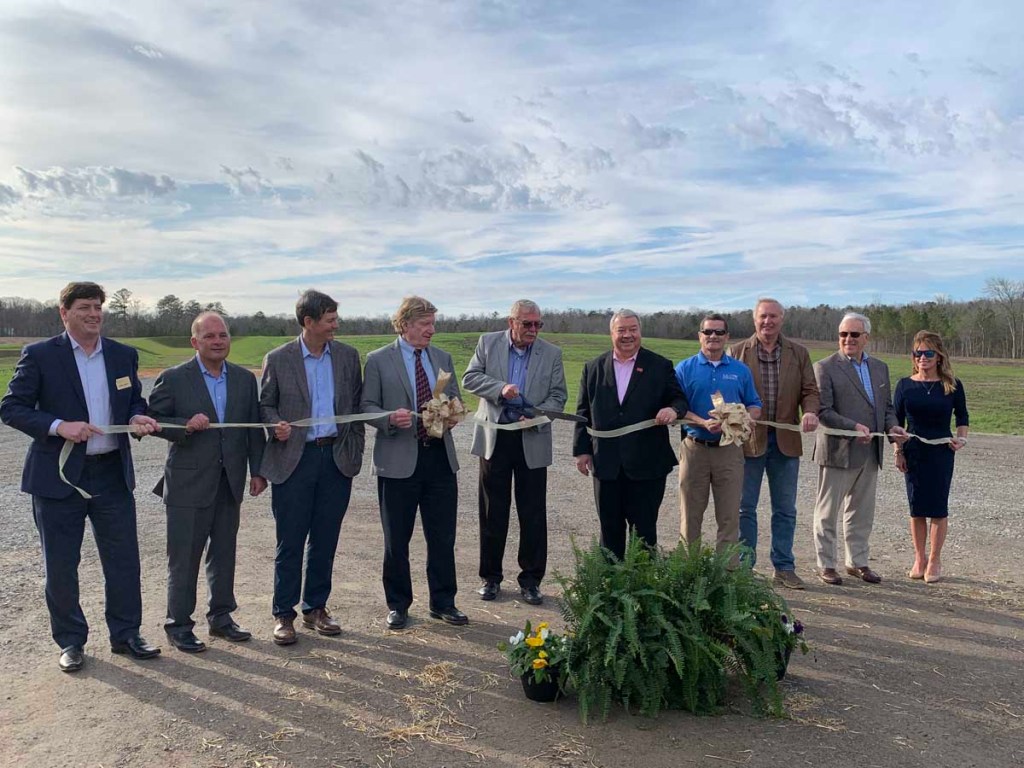Springville, Moody net more than $2.5M through new grant program
Published 12:00 am Thursday, March 7, 2024

- Kelly Creek Commerce Park officially opens with a ribbon cutting ceremony in Moody near Exit 147 on I-20, Feb. 9. Courtesy photo
The city of Moody’s Commercial Development Authority and the St. Clair County Commission’s Industrial Development Board, through a partnership with the City of Springville, have received a combined $2.5 million in grants for industrial site development through the newly created Site Evaluation and Economic Development Strategy (SEEDS) program. State legislators passed the act to create the SEEDS program last year to create a grant program to accelerate the development of new economic development sites across the state.
“SEEDS represents an important tool that will allow us to keep winning those economic development projects that trigger lasting impacts for Alabama citizens,” said Gov. Kay Ivey. “The awarding of the first grants under the program represents a milestone in our efforts to make sure Alabama remains competitive for game-changing growth projects.”
The St. Clair County Economic Development Council assisted on both applications through its new Grant Resource Center. The first grant, totaling $407,902, will help fund extending sewer infrastructure into the recently developed Kelly Creek Commerce Park. This 192-acre park is designed for advanced manufacturing companies in the automotive, food production and advanced materials sector, as well as their headquarters and distribution operations. Once filled, the park is expected to generate more than 1,000 high paying jobs with large capital investment by multiple companies.
“I want to thank Gov. Kay Ivey and the state Legislators, especially Sen. Lance Bell and Rep. Jim Hill, for their foresight and determination to help the smaller communities in Alabama reach our full potential,” Moody Mayor Joe Lee said. “This grant will help us overcome the final missing piece of our puzzle to provide a commerce park where the citizens of Moody and surrounding communities can find gainful employment.”
The second grant, for $2.1 million, will assist in the purchase of 240 rail-served acres less than a mile from I-59 for a newly designed commerce park to benefit the northern area of St. Clair County. The land purchase will be a partnership between the city of Springville and the St. Clair County Commission. This new commerce park would target similar companies to Moody’s Kelly Creek Commerce Park, but with a focus on companies requiring rail service. Once completed and filled, this new park is expected to be home to more than 1,500 new jobs.
“Besides showing our appreciation to Gov. Ivey and the state legislators, I also want to thank the state industrial development authority, Economic Development Partnership of Alabama, the Alabama Department of Commerce and Global Location Strategies for their effort and expertise in seeing the potential in our community’s site,” Springville Mayor Dave Thomas said. The city council and I also want to thank the county commission for being such a strong partner with us as we continue to move forward with this park. This has been a dream of many in Springville and I could not be more delighted we can now move this vision forward.”
“We are delighted that two of our sites in St. Clair County were selected and thankful to Gov. Ivey and the state legislators,” St. Clair County Commission Chairman Stan Batemon said. “We also want to thank mayor Lee and mayor Thomas for their dedication to providing new job opportunities in their communities. The county commission and I continue to believe that by working in partnership with our cities like Moody and Springville, we can achieve so much more than individually. These two commerce parks, like those in Steele and Pell City, will be beneficial to all the citizens of the surrounding communities by providing good job opportunities.”
The SEEDS program was funded with $40 million and was open to all communities in Alabama to assist in site evaluation, due diligence, property purchase, infrastructure improvements and site development. The program required the local public economic development organizations to own the property and have a history of recruitment efforts. The grant program also required a local match with rural and smaller communities providing a smaller percentage. In the first year, the program has had more than $40 million in funding requests.





